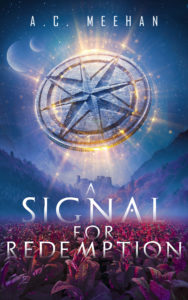Learning new words is something profound. A new word can bring a new idea into focus. Vocabulary is the foundation of thought.
There doesn’t seem to be a standard answer to “how many words are there in the English language”. The problems with counting are pretty obvious — when a word has two distinct meanings, is that two words or one? And is the plural form a new word? And honestly, how do you define “English”? Does it include slang and borrowed foreign words?
It seems to be even harder to define what counts as knowing a word. Throwing together some mismatched internet searches, suppose for a moment that there are over a quarter of a million distinct words, as suggested on the Oxford English Dictionary website. And suppose that, as research cited in someone’s lecture notes has it, a businesswoman who reads a lot knows about 73,000 (and uses 63,000).
This is good news for logophiles: there are always new words to learn. Sadly, many of the words you learn after school are either specialized or rarely used.
In most issues of The Economist, my passive vocabulary gets a good workout in articles that are filled with subject-specific words that I understand but never need to use. Sometimes I also come across a “real” word that could be used in non-subject-specific circumstances. Best of all is when that word carries a denotation or connotation that makes it the perfect word. Then I wait patiently — sometimes for years — for the opportunity to smoothly slip that into a sentence.
Function Over Form
But in functional writing — I mean memos and corporate web pages, or even personal emails and posts — there’s rarely a need for the very finest writing. It can be difficult, even wrenching, to pass over those beautiful, precise words and instead intentionally take the long way around a concept to make it more accessible. Sometimes, one special-purpose $.50 word can replace an awful lot of explanation.
But the fact is, “don’t make me think” is now a guiding principle in both websites and content. Making readers slow down is taken as an affront. The reader’s time is valuable, and they generally don’t want to spend it looking up words. Besides, in some circles, showing what you know is bad form. Even after middle school. I have been told that some people (including educated adults) really, truly feel offended if someone uses “big” words. So I mostly try to keep my love of vocab to myself.
Knowing the Back Roads
This means that in addition to the words I understand but don’t use (passive vocabulary) and the words I do use (active vocab), I also have a sizeable collection of words I could use but don’t. I call this my “background vocabulary” — and I’ve lately realized that the secret vocabulary still counts, especially in editing. It’s like knowing the streets of a city so well that you can always find another way to get to any destination. And sometimes the fastest way isn’t the shortest.
Fluency in a language gives you more ways to make yourself understood. Every word you know gives you access to a concept. So even if you can’t use that perfect, precise word in the particular piece you’re working on, knowing the word still helps you organize your thoughts. That mental clarity makes it possible to simplify without losing too much of the original intent.
I may not get to employ my sesquipedalian (interesting — spell-checker doesn’t recognize that one) favorites often. But an extended vocabulary, and the precision it allows, is a strong foundation for plain language. Thoroughly knowing your way around a language makes it a lot easier to give clear directions.
Image by Shonda Ranson from Pixaba


